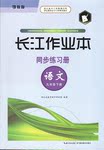
TOKYO – The number of domestic (国内) infections cases of influenza A/H1N1 in Japan hits 42 on Sunday after a total of 34 people in Osaks and Hyogo counties were confirmed to have been infected, local media reported.
The total number of the infection in the country now stands at 46, including the first four cases contracted abroad.
The country is now facing the risk of grass-root outbreak which could lead the WHO to raise its new flu pandemic alert(传染病预警)to the highest level of 6 from the current 5, experts has warned.
The 34 newly confirmed domestic cases, 11 in Osaka and 23 in Hyogo, included high school students, college students and teachers, the health ministry and local governments said Sunday.
Japan on Saturday confirmed the first eight cases of domestic infection on students of a Kobe high school. The later confirmed cases in Osaka are said to have contacted(感染) the Kobe students in a volleyball match. Osaka and Hyogo are neighboring in the Kansai region.
All of the 42 people had no record of overseas travel. Meanwhile, a total of 143 students at the Kansai Okura Senior High School where many infections in Osaka were found, have shown symptoms of influenza since around Monday, according to local media reports. The privately run school said it will be closed from Monday through Saturday. More than 1,000 educational facilities -- kindergartens, and elementary, junior and senior high schools -- in Osaka and Hyogo counties have decided to suspend (暂停) classes for certain periods following the confirmation of new flu infections in the counties, Kyodo News reported.
The two counties have requested private schools to follow suit. Osaka Governor Toru Hashimoto held a meeting of a new flu task force on Sunday and decided to ask facilities such as movie theaters to suspend operations to prevent the spread of the flu. TV clips showed people in Kansai region started to wear masks in public spaces and rushed to drug stores for buying medicines.
The Japanese government on Saturday shifted the stage of its new-flu action program from “a period of overseas outbreak” to “a period of domestic outbreak” and called for companies and schools in the areas concerned to allow individuals to avoid commuting(出行)during rush hours.
The Kyodo News quoted Masato Tashiro, a member of the World Health Organization's emergency committee, as saying that several hundred people in Japan already may have been infected with the new flu.
60.According to the passage, the total number of the A/H1N1 infection in Japan now is _______.
A.42 B.34 C.46 D.143
61.The reasons for the happening of the later confirmed cases in Osaka are the following except
__ _.
A.143 students at the Kansai Okura Senior High School have shown symptoms of influenza.
B.Some students in a Kobe High school got infected.
C.Osaka and Hyogo are next to each other in the Kansai region.
D.The later infected people contacted the Kobe students in a volleyball match.
62.What is the implied meaning of what Masato Tashiro said in the last paragraph?
A.The real situation about the new flu in Japan may be worse than it has been reported.
B.Several hundred people have been infected but they don’t know it.
C.The WHO has to raise its new flu pandemic alert to the highest level.
D.The WHO’s emergency committee are trying to confirm the number of infection in Japan.
63.The purpose of the passage is ______.
A.to introduce the domestic infection cases in Japan.
B.to draw people’s attention to the worsening situation of influenza A / H1N1
C.to give some advice on preventing the spread of the flu.
D.to call for educational facilities in Japan to suspend classes for some time.
 黄冈冠军课课练系列答案
黄冈冠军课课练系列答案 长江作业本同步练习册系列答案
长江作业本同步练习册系列答案科目:高中英语 来源: 题型:阅读理解
Doors and windows can’t keep them out; airport immigration officers can’t stop them and the Internet is a complete reproduction soil. They seem harmless in small doses, but large imports threaten Japan’s very uniqueness, say critics. “They are foreign words and they are infecting the Japanese language”.
“Sometimes I feel like I need a translator to understand my own language, ”says Yoko Fujimura with little anger, a 5-year-old Tokyo restaurant worker.“It’s becoming incomprehensible”.
It’s not only Japan who is on the defensive. Countries around th globe are wet through their hands over the rapid spread of American English. Coca?Cola,for example, is one of the most recognized terms on Earth.
It is made worse for Japan, however, by its unique writing system. The country writes all imported utterances(言论) except Chinese?in a different script called katakana (片假名). It is the only country to keep up such a difference. Katakana takes far more space to write than kanji?the core pictograph (象形文字) characters that the Japanese borrowed from China 1,500 years ago. Because it stands out, readers complain that sentences packed with foreign words start to look like extended strings of lights. As if that weren’t enough, katakana terms tend to get puzzling.
For example, digital camera first appears as degitaru kamera. Then they became the more ear?pleasing digi kamey. But kamey is also the Japanese word for turtle. “It’s very disappointing not knowing what young people are talking about,” says humorously Minoru Shiratori, a 53?year?old bus driver. “Sometimes I can’t tell if they’re discussing cameras or turtles.”
In a bid to stop the flood of katakana, the government has formed a Foreign Words Committee to find suitable Japanese replacements. The committee is slightly different from French?style language police, which try to support a law that forbids advertising in English. Rather, committee members and traditionalists hope a non?stop campaign of persuasion, gentle criticism and leadership by example can turn the tide.
12.According to the author, the reason why the Japanese is infectd greatly by English is .
A.that nothing can prevent it from entering into Japan
B.that English is the most recognized language in the world
C.that the government has not set up a special administration department to control this trend before it becomes popular in Japan
D.not clearly mentioned in this passage
13.By saying “counties around the globe are wet through their hands over the rapid spread of American English,”the author infers that .
A.even a restaurant worker in Japan may feel the English infection on Japanese
B.the flood of katakana has covered most of countries in the world
C.Coca?Cola is the most popuar on the earth and this product covers all the global market
D.many other countries are affected greatly by American English
14.According to the author, the last paragraph mainly deals with.
A.how French-style language police has prevented the infection of English
B.how Japanese Foreign Words Committee prevents the infection of foreign words
C.the suitable Japanese replacements
D.why committee members and traditionalists begin to declare a war against the infection of foreign words
15.Which conclusion can be drawn based on the opinions from the Japanese people (in paragraph 2 and 4 of this passage)?
A.The elders strongly advocates replacing the foreign words than young people.
B.All the people dislike speaking the foreign words, such as “digi kamey”.
C.They are so old that it is necessary to give some language assistance by a specialist.
D.People’s work determines the language they speak.
查看答案和解析>>
湖北省互联网违法和不良信息举报平台 | 网上有害信息举报专区 | 电信诈骗举报专区 | 涉历史虚无主义有害信息举报专区 | 涉企侵权举报专区
违法和不良信息举报电话:027-86699610 举报邮箱:58377363@163.com